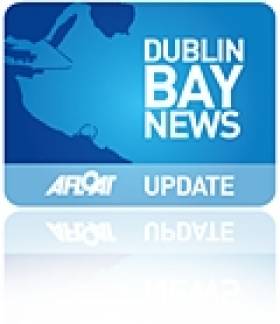Displaying items by tag: Predident MD Higgins
New Lease of Life for Reopened Maritime Museum
#MARITIME MUSEUM REOPENING – It is good to report positive news, particularly the much awaited reopening of the Maritime Institute of Ireland's maritime museum in Dun Laoghaire, which is to take place today, writes Jehan Ashmore.
Since 2006, the museum secured vital Government grants to undertake repair, renovation and improvement works of the former Church of Ireland church built in 1837 which could accommodate up to 1,400 people. Due to dwindling parish numbers the church closed on Easter Sunday 1972 and two years later the museum moved in.
Over the next three decades visitors enjoyed the unique and apt setting of the former Mariners Church. However as the years rolled the structure of the building was in need of urgent attention which led to the closure in 2004.
The extensive work has included the replacement of the roof, treatment of dry rot, repointing and cleaning of the stonework, replaced plasterwork, repair of the stained glass windows, installation of new lighting and heating systems and wheelchair accessibility provided.
Initially the museum will only use the ground floor, having said that a new layout is presented with several 'stories' centred around these exhibits, to read more about the exhibits click HERE.
In addition children will be entertained by a Knot Station and there is to be a souvenir shop and coffee dock. Opening hours are 11am to 5pm Tuesday to Sunday, including Bank Holidays, for further information visit: www.mariner.ie
The Maritime Institute of Ireland celebrated its 70th anniversary last year, and was established primarily to highlight the importance of an Irish mercantile fleet, the role of ports and shipping, fishing and to recognise and foster our maritime heritage.
Members can join the Institute with the benefits of accessing the museum (covering admission) runs a lecture programme, issue newsletters, host and support commemorations and conducts research. As a voluntary organisation they also welcome new recruits.
The instiute's patron is President Michael D. Higgins who is to officially reopen the museum in early June.
























































